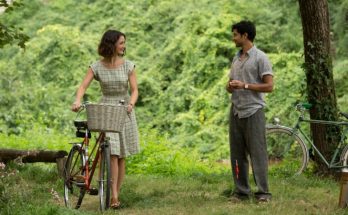
Photo : Amit Patel
LONDON – The South Asian Literature Festival took over the University of Westminster this past week, with sessions including a discovery of the stories of over a quarter of a million ‘coolie women’, with New York journalist Gaiutra Bahadur launching her new book Coolie Woman: The Odyssey of Indenture. In addition, there was a celebration of the work of the hugely influential Partition-era writer Attia Hosain, a discussion of untold tales about Partition with Salil Tripathi and Saaz Aggarwal, and a frank discussion of homosexuality in South Asian literature.

On Friday, 110 years after her great-grandmother was sent, pregnant and travelling alone, from India to Guiana as a “coolie” — the derogatory British name for indentured labourers who replaced the newly emancipated slaves on sugar plantations all around the world – Gaiutra Bahadur, in conversation with Neel Mukerjee, gave the festival a glimpse of an Indo-Caribbean past with stories about a quarter of a million ‘coolie women’ who have been largely forgotten by history.
On Saturday, Kamila Shamsie and Aamer Hussein joined Attia Hosain’s son Waris Hussein to pay tribute to the life and work of the prolific Partition-era writer Attia Hosain. Her novel Sunlight on a Broken Column (1961) has long been heralded as one of the finest novels written about the tumultuous days of the Partition. The Festival commemorated Hosain’s birth centenary with a poignant tribute to the late journalist and author.
Bobby Tiwani, Aleem Khan and Iman Qureshi joined Sharmila Chauhan and Fiez Mughal to read from their work and discussed where the vitriol for this ‘controversial’ subject matter comes from, with an informed and passionate audience.
Earlier on the same day, the Festival debated representations of homosexuality in South Asian literature, still something of a taboo in spite of homosexual themes and scenes permeating the great scriptures, tales and novels from South Asia over centuries. Bobby Tiwani, Aleem Khan and Iman Qureshi joined Sharmila Chauhan and Fiez Mughal to read from their work and discussed where the vitriol for this ‘controversial’ subject matter comes from, with an informed and passionate audience.
The day ended with a discussion of Bengali literature, one of the oldest and richest literatures in South Asia. Kunal Basu and Kaiser Haq exchanged thoughts on how ‘Bangla Sahityo’ – a term for all literary work in the Bengali language – has made its mark on the South Asian literary canon, presenting the world with intellectuals such as Rabindranath Tagore and Bankim Chandra Chattopadhyay. The evening concluded with a stunning performance by acclaimed Indo-Jazz artist Arun Ghosh who performed material from his latest album A South Asian Suite.
The festival continued last night with Amish Tripathi – the bestselling Indian author described as ‘archetypal and stirring’ by spiritual guru Deepak Chopra – who made his debut UK appearance in conversation with festival director Bhavit Mehta at Conway Hall.
STILL TO COME…
On Thursday, Yasmin Ali-Bhai Brown, Sunny Hundal and others will scrutinise the British media’s contentious response to the Ugandan Asian exodus of 1972. The Festival concludes on Friday with Amit Chaudhuri talking to Man Booker Prize-shortlisted Jeet Thayil about the role that cities assume in their writings, and how the increase in urban environments across India will continue to shape writing from the country.
Tickets are available through www.southasianlitfest.com or by calling the Festival Box Office on 01865 798797.




